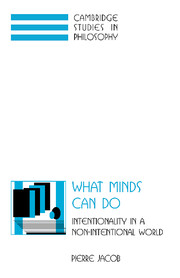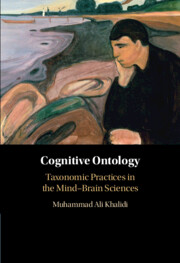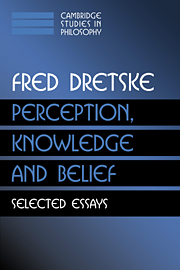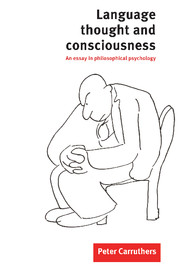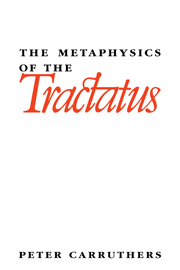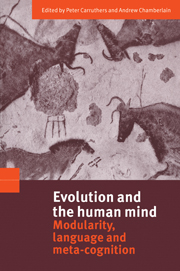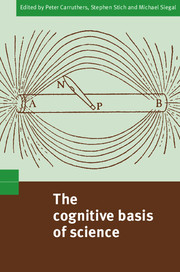
The Cognitive Basis of Science
$61.99 (P)
- Editors:
- Peter Carruthers, University of Maryland, College Park
- Stephen Stich, Rutgers University, New Jersey
- Michael Siegal, University of Sheffield
- Date Published: May 2002
- availability: Available
- format: Paperback
- isbn: 9780521011778
$
61.99
(P)
Paperback
Other available formats:
Hardback, eBook
Looking for an examination copy?
This title is not currently available for examination. However, if you are interested in the title for your course we can consider offering an examination copy. To register your interest please contact [email protected] providing details of the course you are teaching.
-
What makes science possible? Specifically, what features of the human mind, of human cognitive development, and of human social arrangements permit and facilitate the conduct of science? The essays in this volume address these questions, which are inherently interdisciplinary, requiring co-operation between philosophers, psychologists, and others in the social and cognitive sciences. They concern the cognitive, social, and motivational underpinnings of scientific reasoning in children and lay persons as well as in professional scientists.
Read more- A volume of interdisciplinary essays
- Current views on a rapidly developing and controversial subject area
- Relevant to current debates about the rationality and objectivity of science
Customer reviews
Not yet reviewed
Be the first to review
Review was not posted due to profanity
×Product details
- Date Published: May 2002
- format: Paperback
- isbn: 9780521011778
- length: 422 pages
- dimensions: 228 x 153 x 27 mm
- weight: 0.665kg
- contains: 19 b/w illus. 2 tables
- availability: Available
Table of Contents
1. Introduction: what makes science possible? Peter Carruthers, Stephen Stich and Michael Siegal
Part I. Science and Innateness:
2. Human evolution and the cognitive basis of science Steven Mithen
3. Modular and cultural factors in biological understanding: an experimental approach to the cognitive basis of science Scott Atran
4. The roots of scientific reasoning: infancy, modularity, and the art of tracking Peter Carruthers
Part II. Science and Cognition:
5. Science without grammar: scientific reasoning in severe a-grammatic aphasia Rosemary Varley
6. Causal maps and Bayes nets: a cognitive and computational account of theory-formation Alison Gopnik and Clark Glymour
7. The cognitive basis of model based reasoning in science Nancy Nersessian
8. Understanding the role of cognition in science: the Science as Category framework Kevin Dunbar
9. Theorizing is important, and collateral information constrains how well it is done Barbara Koslowski and Stephanie Thompson
10. The influence of prior belief on scientific thinking Jonathan St B. T. Evans
11. Thinking about causality: pragmatic, social and scientific rationality Denis Hilton
Part III. Science and Motivation:
12. The passionate scientist: emotion in scientific cognition Paul Thagard
13. Emotions and epistemic evaluations Christopher Hookway
14. Social psychology and the theory of science Philip Kitcher
Part IV. Science and the Social:
15. Scientific cognition as distributed cognition Ronald Giere
16. The science of childhood Michael Siegal
17. What do children learn from testimony? Paul Harris
18. The baby in the lab-coat: why child development is an inadequate model for understanding the development of science Luc Faucher, Ron Mallon, Daniel Nazer, Shaun Nichols, Aaron Ruby, Stephen Stich and Jonathan Weinberg.
Sorry, this resource is locked
Please register or sign in to request access. If you are having problems accessing these resources please email [email protected]
Register Sign in» Proceed
You are now leaving the Cambridge University Press website. Your eBook purchase and download will be completed by our partner www.ebooks.com. Please see the permission section of the www.ebooks.com catalogue page for details of the print & copy limits on our eBooks.
Continue ×Are you sure you want to delete your account?
This cannot be undone.
Thank you for your feedback which will help us improve our service.
If you requested a response, we will make sure to get back to you shortly.
×
